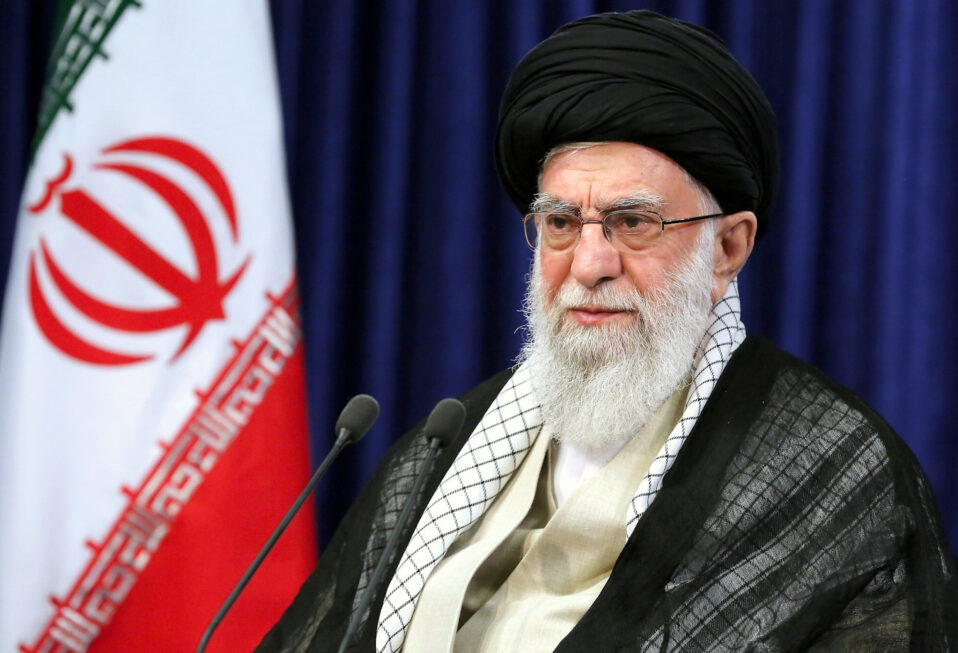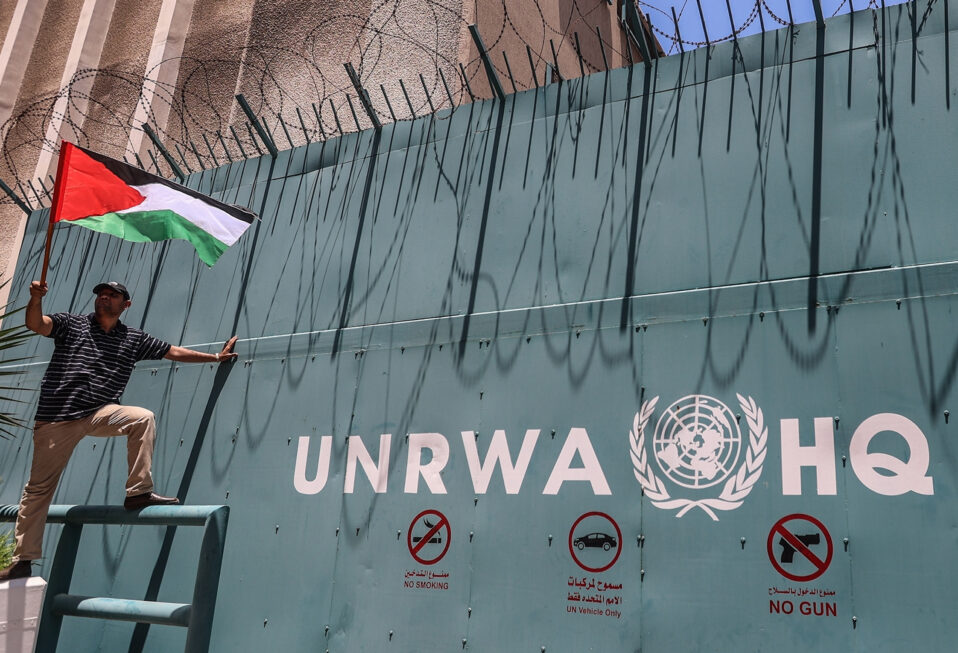By Arlene Bridges Samuels
After six months of justly defending against Hamas’s barbaric invasion into their homeland on October 7, the Israel Defense Forces (IDF) have been accused of every evil that has been executed by the terrorists themselves. Iran and its terror proxies—Hamas, Hezbollah, and the Houthis—are proficient propagandists.
Note the word “Defense” in the IDF’s official name. Israelis are not warmongers. Indeed, after its modern founding on May 14, 1948, Israel was invaded in 1948–49, 1956, 1967, 1973, 1982, 2006, and 2023. Not counting years of unrelenting rocket fire from terrorist enclaves and the two Palestinian-incited Intifadas—one beginning in 1987 and the other in 2000—unrelenting hatred has forced Israel to defend its population and develop into the most powerful, yet moral, military in the world.
Hamas tore pages out of Hitler’s still-popular 1925 autobiography Mein Kampf (“My Struggle”) by using his strategies to murder 1,200 people last October. In this book, Hitler wrote about the “big lie.” He described this propaganda technique as being so “colossal,” no one would believe that his “impudence to distort the truth so infamously” would even be attempted. Re-enacted now by new Nazis copying advice from the almost 100-year-old book, this technique has obviously been successful. The world is easily swayed by twisted headlines and outright lies. The IDF has recently found Arabic copies of Mein Kampf in Gaza and in Lebanon and Palestinian Authority territories during past conflicts. As a guidebook, Mein Kampf points straight at terrorist mindsets based on their devotion to Hitler’s techniques and their implacable hatred of Jews.
Israel now faces the worst and most prolific propaganda I have ever witnessed as an Israel advocate. With Hitler’s demonic book and Holocaust era murders, Hamas and their sympathizers are using the same strategy: “If you repeat a lie often enough, people will believe it, and you will even come to believe it yourself.” It is inconceivable that much of the world’s mainstream media puts its stamp of approval on terrorist lies that glorify Hitler’s strategies. In addition, the media have chosen to believe the Hamas Ministry of Health’s inflated numbers of civilian deaths. This is journalism? Many within the media have shifted from believing Israel’s Government Press Office (GPO) facts to tearing the IDF apart and blaming them for their nation’s existential fight. They have erased truth and wisdom from their pages and broadcasts with the inflammatory, unsubstantiated facts they received from other sources.
Stop for a moment and absorb the following. To mark six months since the Simchat Torah massacre of October 7 and the outbreak of the Hamas War, the National Public Diplomacy Directorate and the GPO have summarized media statistics. In October and November 2023, the largest media events since Israel’s modern founding in 1948 took place. Over 4,000 foreign journalists gathered from all over the world. Five hundred hours of video were broadcast from the destroyed kibbutzim and Sderot. The GPO conducted 60 tours. Screenings of the October 7 “atrocities film” took place with an IDF spokesperson. (As a reminder, this disturbing footage was taken with the body cams and iPhones of the Hamas terrorists themselves.) My friend Nitzan Chen, director of the GPO, has worked in heroic efforts with his staff. Nitzan narrates this YouTube video.
Now, I am highlighting the IDF’s humanitarian policies that conform to the International Laws of War within their moral compass regarding civilians living in enemy territories. Unique to the Israeli military, these foundational policies toward civilians have guided the IDF for decades in defensive wars. However, due to the enormous challenges of urban warfare in Gaza’s crowded locations, the IDF is implementing an even more meticulous set of lifesaving standards to minimize civilian casualties.
The contrasts between Hamas and the IDF are stark. The IDF’s mission is to protect its population and provide security. By contrast, Hamas uses Gazan civilians—including women and children—as human shields. (Their top leaders are multi-millionaires and live safely in Qatar, over 1,000 miles away.) John Spencer, chair of Urban Warfare Studies at the Modern War Institute at West Point, served for 25 years as an infantry soldier with two tours in Iraq. This expert observed, “Israel has taken more measures to avoid needless civilian harm than virtually any other nation that’s fought an urban war. No military has ever implemented any of these practices in war before.”
What follows are some of the IDF’s long-time practices. Before impending strikes, Israel sends texts and pre-recorded phone messages and makes real-time phone calls. The Israel Air Force (IAF) drops leaflets urging civilians to vacate buildings where Hamas weapons are stored, warning them to move away from Hamas. The IAF uses a roof knock—dropping a loud but non-lethal bomb that warns residents to leave the building within the hour.
Another example is simply a comparison, not intended to demean our American forces that fought in the Iraq War. John Spencer reveals that the United States did not alert Iraq before its initial invasion in 2003, despite involving major urban battles in Baghdad, nor an alert for civilians in its first Battle of Fallujah. Before the second Battle of Fallujah, a civilian warning took place.
Hamas terrorists are an army of cowards. Rather than dressing in military uniforms to fight conventional warfare, they wear ordinary civilian attire and hide among the population. Israeli military policies to decrease Gazan civilian deaths via advance warnings increase the possibility of death and injury for Israeli soldiers. Alerted, Hamas terrorists pop up out of tunnel openings in Gaza armed and ready to kill, or to plant IEDs in tunnels where the IDF is searching for hostages or eliminating terrorists. The criticisms from world governments, violent demonstrators, and mainstream media are outrageous and hypocritical. Indeed, we live in a world in which the famous biblical prophet Isaiah wrote in chapter 5, verse 20, “Woe to those who call evil good and good evil, who put darkness for light and light for darkness, who put bitter for sweet and sweet for bitter.”
To expose today’s slanders against the IDF, the Christian community must remember and proactively share IDF policies, abandon apathy, and maintain vigilance. Choose to consult trusted media and organizations like CBN News, Chris Mitchell on Jerusalem Dateline, Stakelbeck Tonight on TBN, All Israel News, Amir Tsarfati’s Telegram, and Israel Defense and Security Forum. Dismiss denial and naivete, and most of all, share the facts.
Our CBN Israel team welcomes you to join in our ongoing prayers for Israel, our spiritual homeland, and to recall John 1:5—“The light shines in the darkness, and the darkness has not overcome it.”
Prayer Points:
- Pray for all men and women serving in the IDF in all positions for strength and hope.
- Pray for the families of 604* IDF soldiers who have died defending their nation.
- Pray for the total of 3,202* IDF soldiers mildly, moderately, or severely wounded.
- Pray for the soldiers traumatized by the deaths and injuries of their compatriots.
- Pray for Director Nitzan Chen and his heroic staff at Israel’s Government Press Office.
*These figures were updated April 7, 2024, by the Israel Ministry of Foreign Affairs.
Arlene Bridges Samuels pioneered Christian outreach for the American Israel Public Affairs Committee (AIPAC). After she served nine years on AIPAC’s staff, International Christian Embassy Jerusalem USA engaged her as Outreach Director part-time for their project, American Christian Leaders for Israel. Arlene is an author at The Blogs-Times of Israel and has traveled to Israel since 1990. She co-edited The Auschwitz Album Revisited and is on the board of Violins of Hope South Carolina. By invitation, Arlene attends Israel’s Government Press Office Christian Media Summits. She also hosts her devotionals, The Eclectic Evangelical, on her website at ArleneBridgesSamuels.com.















